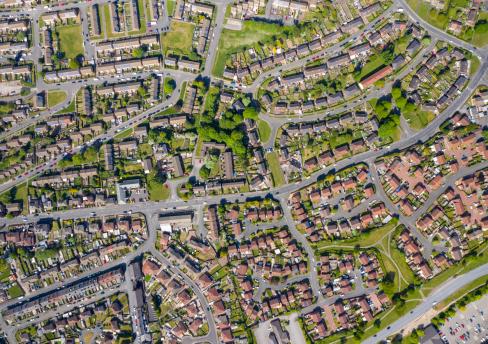Landlords, Tenants and businesses that operated from their own freehold premises alike have struggled throughout Covid-19 and the associated lockdowns, even where deferred or waived Rent arrangements or mortgage payment relief were possible by negotiation between the parties. For those who had insurance for business interruption (BI), but whose policy providers refused to pay out (where some insurers had), this was particularly frustrating. Even those whose policies were taken out to protect against property damage may have BI insurance as a result of the Supreme Court's decision regarding the clauses mentioned below.
What has changed
The Financial Conduct Authority's test case against eight insurers (FCA v Arch Insurance (UK) Ltd and others [2021] UKSC 1) considered a representative sample of 21 types of policy issued by the eight insurers, to clarify which policies the insurers were (and were not) liable to pay out in connection with Covid-19 claims. The importance and urgency of the claims considered meant that when disputes arose regarding the High Court's decision regarding the same policies, the appeal "leapfrogged" to the Supreme Court, rather than the Court of Appeal. The Supreme Court has issued its (lengthy) judgment, but has not yet issued declarations regarding the claims, which are yet to be agreed with the insurers.
Broadly, the judgment clarifies that these policies should pay out, subject to some caveats discussed below, and also clarified when the claim could be claimed from. The specific wording of each policy and each business it affects is different, so although the Supreme Court's findings will mean that more policyholders will have valid claims, each policyholder will need to contact their insurer, and go through the process of claiming (again).
Arch Insurance (UK) Ltd, Argenta Syndicate Management Ltd, Ecclesiastical Insurance Office Plc, MS Amlin Underwriting Ltd, Hiscox Insurance Company Ltd, QBE UK Ltd, Royal & Sun Alliance Insurance Plc or Zurich Insurance Plc are legally bound by the Supreme Court's findings, summarised (briefly) below. However, the case is incredibly complex, and does not necessarily cover all policies provided by these insurers. The FCA has provided guidance, statements and updates on the case to date, which will be useful background to anyone considering making a claim, including a policy checker- available to view at the FCA website.
Summary
The appeal dealt with four types of clauses where a claim might be brought as a result of Covid-19, and the complicated issue of causation:
Disease Clauses: Where there is a "notifiable disease" (which Covid-19 has been since 5 March 2020) at or near the Property, often within a specified distance.
The High Court had already held that claims relating to disease clauses would be valid. However, the Supreme Court clarified that there must have been a case of Covid-19 within the specified distance mentioned in the policy (they considered a policy stipulating a 25-mile radius) for a claim to be valid.
The Supreme Court also considered the insurer's argument that as the national response to the pandemic would have been the same regardless of whether there was a sufficiently local positive Covid-19 test, policyholders could not recover. See our comments on Causation below.
Prevention of access clauses: Where a public authority prevents (or, in some cases, hinders) access to or use of a Property.
The Supreme Court considered whether the government advice (mandating individuals stay at home) or later restrictions issued requiring people to stay home and businesses to close where possible by law were the relevant trigger for a claim to be made. The Supreme Court disagreed with the High Court and found that the mandatory instructions issued by a public authority amounted to a "restriction imposed", so would be a valid trigger for a claim, but only where it carried the imminent threat of legal compulsion or was in mandatory and clear terms, and indicated that compliance was required without recourse to legal powers. Whether the Government announcements of general and special measures would suffice for this remains to be confirmed.
They also considered the meaning clauses which covered a policyholder's "inability to use" their Property, finding that where a policyholder is unable to use the Property for a discrete business activity or is unable to use a discrete part of the premises for its business activities, this would trigger the clause. They agreed with insurers that similar wording, relating to "prevention" or "denial" of access required that the Property was impossible to access rather than access "just" being hindered. As a result, restrictions on movements imposed by the Lockdown Regulations would only rarely amount to an inability to use or prevention of access to the Property.
Hybrid Clauses: A combination of the main elements of the above cover.
These clauses are often quite specific- the Supreme Court held that that BI losses are covered only if they result from all the elements of the risk covered by the clause operating (in the required order). Where the insured losses were also caused by other uninsured effects of the COVID-19 pandemic, provided that these losses were incurred at the same time and the causes were roughly equal, or that the Covid-19 pandemic was the main cause, this may still be covered.
Trends clauses: Cover the loss in business profits, adjusting for general "trends" that would have affected the business, had an insured peril not occurred.
The Insurers argued that trends clauses meant that they would not need to pay out as other (Covid-19 pandemic related) matters would have impacted the trends in a similar way to the impact of the insured risk. This followed the case of Orient-Express Hotels Ltd v Assicurazioni Generali SpA [2010] EWHC 1186.
The Supreme Court held that as the trends were a result of the same risk that was insured against, that impact should be disregarded and the Orient-Express case overruled. Further, they held that insurers should calculate claims by reference to business losses as a result of Covid-19 as a whole, including in the "run up" to the initial nationwide lockdown.
Causation: Whether the insured risk is the cause of the losses a business suffers.
The key factor when considering causation for most Covid-19 claims is whether customer access is the key to the claim. If the wider implications of the pandemic have deterred customers from using the business, causing loss, rather than their inability to access the Property, the loss would not be covered. Those businesses who have managed to successfully transition to online sales or delivery services may therefore struggle to claim fully for their BI losses.
The Supreme Court also held that the general principles will apply:
- Where the losses are sufficiently related to the occurrence of an insured risk, the insurer will generally be liable.
- Where the secondary cause of a loss is excluded (rather than just not mentioned), insurers are not generally held liable, so again the specific wording of each BI policy will be relevant.
Where the secondary causes of loss are not specifically excluded, even where there is a combination of secondary causes, this does not prevent a valid claim for an insured risk.
Given the potential volume of claims, those with relevant BI policies are advised to contact their insurers to see if they have a claim, and to act quickly. If you disagree with your insurer's decision, you can refer the matter to the Financial Ombudsman for consideration in the first instance.
The content of this webpage is for information only and is not intended to be construed as legal advice and should not be treated as a substitute for specific advice. Morton Fraser LLP accepts no responsibility for the content of any third party website to which this webpage refers. Morton Fraser LLP is authorised and regulated by the Financial Conduct Authority.










